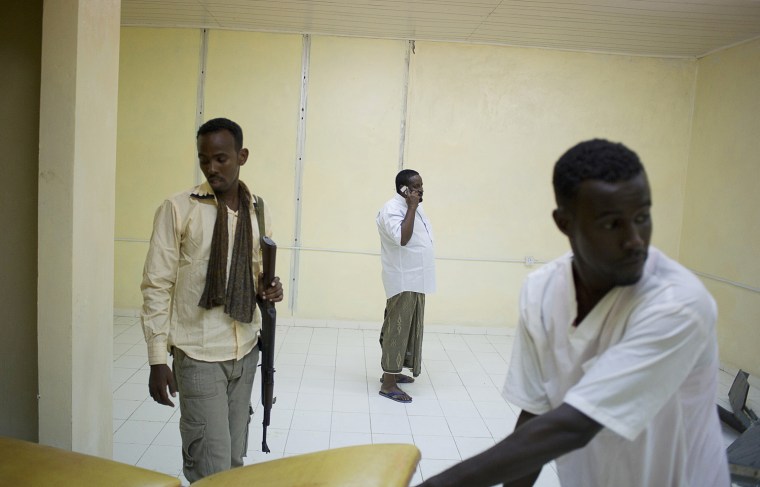Hospitals, health care workers and ambulances are increasingly targeted in conflicts worldwide from Libya to Somalia, depriving millions of sick and wounded people of treatment, according to the International Committee of the Red Cross.
The independent aid agency, which delivers supplies and collects the wounded and dead from battlefields, called for a halt to deadly assaults on medical facilities and personnel.
"Hospitals in Sri Lanka and Somalia have been shelled, ambulances in Libya shot at, paramedics in Colombia killed and wounded people in Afghanistan forced to languish for hours in vehicles held up at checkpoints," Yves Daccord, ICRC director-general, told a news briefing Wednesday.
"People get used to it. Hospitals are attacked, doctors are arrested and it now seems to be a normal part of armed conflict," he said.
'Too dangerous'
In a report entitled "Health Care in Danger: Making the Case", the ICRC documented 655 violent incidents between 2008 and the start of 2011 in 16 countries that disrupted delivery of health care, many of them deliberate attacks violating international humanitarian law.
In all, 1,834 people were killed or injured, including 159 health care workers in the attacks which it called "the tip of the iceberg." Some 128 medical personnel were kidnapped and 32 ambulances were damaged, it said.
"They die because the ambulance does not get there in time, because health personnel are prevented from doing their work, because hospitals are themselves targets of attacks or simply because the environment is too dangerous for effective health care to be delivered," said Dr. Robin Coupland, a British war surgeon who led the ICRC research.
The violence, often accompanied by looting, means doctors and nurses leave their jobs, hospitals run out of drugs or fuel to run generators and vaccination campaigns grind to a halt.
This leaves patients even more vulnerable to diseases which can break out in conflict areas such as polio or cholera.
In Libya, a healthcare system that relied on foreign workers was crippled when the war prompted an exodus, leaving hospitals in Misrata and Benghazi critically understaffed. Ajdabiyah hospital appears to have been "used as cover for snipers."
Civilians caught in crossfire
Under the Geneva Conventions, the wounded and sick, whether civilians or combatants, must receive prompt medical treatment.
Yet many armies and rebels flout humanitarian law, according to the ICRC, which has launched an awareness campaign.
"In conflicts all over the world, combatants overlook their responsibility to care for civilians caught in the crossfire," it said, noting that relatives and neighbors bring most civilian casualties to hospital.
The ICRC plans to help train soldiers to speed inspections of ambulances at checkpoints.
"It should take maybe 5 minutes to inspect an ambulance, not 5 hours. And you don't have to put dogs in the ambulances to run all over the patients, as we've seen, to check for explosives," Coupland said.
Hospitals have been used to store weapons or launch attacks, including in the Palestinian territories, the report said.
Afghanistan, Iraq, Sri Lanka and Somalia have suffered some of the worst attacks against medical centers and staff, it said.
During Israel's 2008-2009 invasion of Gaza, four starving Palestinian children were found sitting near the bodies of their dead mothers, four days after shelling, but Israeli forces prevented ambulances from reaching the victims, it said.
Somalia lost only the second batch of medical graduates in 20 years when a suicide bomber blew himself up at a university ceremony in Mogadishu in December 2009, killing 22.
Taliban insurgents in the southern city of Kandahar used an ambulance packed with explosives last April to kill 12 people at a police training base, the ICRC said.
"In recent unrest in Bahrain, Syria and Yemen, protesters have been too afraid to use medical facilities for fear their wounds will identify them and provoke harsh reprisals," it said.
